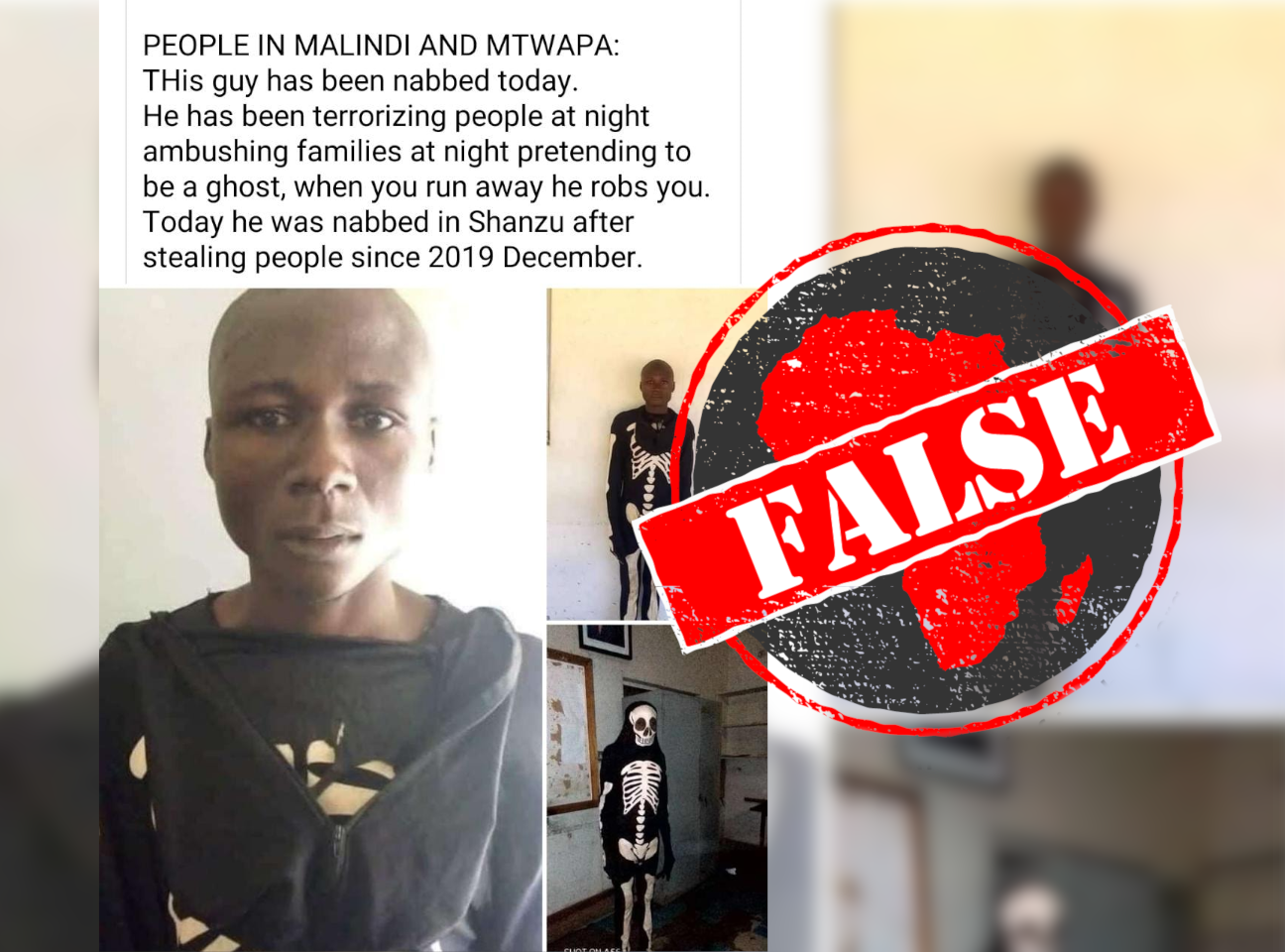Photos showing a man in a “ghost-like” skeleton costume have been shared widely on Facebook in Kenya.
The photos are posted with the claim that the man was robbing people in a number of Kenyan towns until he was arrested in Mombasa, Kenya’s second-largest city.
But what’s the real story behind these photos?

Burglaries in Zimbabwe
A reverse image search of one of the photos reveals that the photos originated in Zimbabwe and not Kenya. A number of news sites in Zimbabwe and Kenya reported extensively on the incident.
The story went viral in Zimbabwe on 27 May 2021 and appears to have been shared in Kenya the day after, with the claim the robber was Kenyan.
Veteran Zimbabwean journalist Hopewell Chin’ono wrote about the incident on Facebook and Twitter. He said that the man was breaking into homes in Gutu, a district in southern Zimbabwe, pretending to be a ghost.
All evidence suggests the photos are from Zimbabwe, not Kenya.
Republish our content for free
For publishers: what to do if your post is rated false
A fact-checker has rated your Facebook or Instagram post as “false”, “altered”, “partly false” or “missing context”. This could have serious consequences. What do you do?
Click on our guide for the steps you should follow.
Publishers guideAfrica Check teams up with Facebook
Africa Check is a partner in Meta's third-party fact-checking programme to help stop the spread of false information on social media.
The content we rate as “false” will be downgraded on Facebook and Instagram. This means fewer people will see it.
You can also help identify false information on Facebook. This guide explains how.


Add new comment